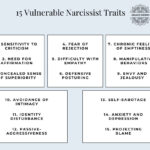Fear of Abandonment in Relationships
Are you a people pleaser?
Do you have trust issues in relationships?
Are you clingy and needy in a romantic relationship?
If you answered yes to the above questions, it’s highly likely that you have fear of abandonment in relationships. Most people are not aware of this overwhelming fear which causes a lot of anxiety. Fear of abandonment in relationships drives people to engage in unhealthy behavioral patterns to avoid being abandoned.
What is fear of abandonment in relationships and where does it come from?
Fear of abandonment in romantic relationships comes from a deep fear of loneliness and being abandoned by your loved one. This issue usually originates from childhood. The way our parents or caregivers attend to our emotional and physical needs during infancy affect our attachment styles. These attachment styles define how we communicate our needs in romantic relationships.
If you have fear of abandonment in relationships, you need to improve your sense of self-worth. A lack of sense of self-worth leads to seeking external validation to boost your self-esteem. Learn more about what is fear of abandonment to have a deeper understanding of its roots and where it comes from.
Codependency and fear of abandonment

If you struggle with fear of abandonment in relationships, you might also have codependency traits. This means that you get your sense of worth from your romantic partner and feel incomplete without him.
This kind of behavior can be dangerous as it means that you will let people take advantage of you and step over your boundaries to avoid being abandoned. People pleasers neglect their needs and always make sure that they are ready to help people even if it is inconvenient for them.
These kinds of traits make you a perfect match for a narcissistic partner. Narcissistic people target codependents, who also struggle with fear of abandonment as they need someone to attend to their needs and provide them with narcissistic supply. This means that a narcissist can keep taking advantage of you and manipulate you. Learn more about the red flags to look out for in a relationship to spot a narcissist and prevent from getting abused and manipulated.
Related: How To Break Codependency | Am I enough?
Sign and symptoms of fear of abandonment in relationships:
If you struggle with fear of abandonment in relationships, you would do just about anything to stop a relationship from ending. Here are some signs and symptoms that people with fear of abandonment in romantic relationships do:
- Clingy, moody and needy
- Have major trust issues in your romantic relationship
- Threaten your partner if they say that they want to leave you by trying to convince them that they’ll be sorry and regret leaving you because they will never find someone like you
- Become depressed if you sense that your romantic relationship is coming to and end (having suicidal thoughts or threatening your partner with suicide)
- Keep trying to force the relationship and try to see how you can do things differently
- Unable to communicate your needs and then get mad at your partner for not fulfilling your needs
- Try to seduce your partner in the hopes that sex could save your relationship
How to get over fear of abandonment in relationships?
To get over your fear of abandonment in relationships is essential to build and maintain healthy and secure romantic relationships. If you fear abandonment, you must work on the relationship with yourself and nourish yourself with self-love.
Here are a few steps you can follow to help you get over your fear of abandonment in relationships:
- Read positive affirmations about yourself everyday – ex: I am worthy of love, I am enough, I love myself fully and unconditionally….
- Practice mindful meditation – this will help you become more aware of your thoughts and emotions. That way you can change how you speak to yourself and change negative self-talk to empowerment talk.
- Accept yourself – accepting yourself with all your positive qualities and weaknesses is a form of unconditional love.
- Be brave, be authentic – instead of adjusting who you are to please others and meet their expectations, be true to who you are and allow yourself to be who you really are.
- Practice self-care – taking good care of yourself, physically, emotionally, mentally and spiritually will help you feel good about yourself and stay positive.
- Practice gratitude – listing down things you are grateful for will cultivate a positive warm feeling which raises your vibration.
- Become assertive – learning how to communicate your needs and feelings is not selfish but an act of self-love. This will teach you to honor your feelings and form solid boundaries.
- Repeat codependency affirmations – repeating codependency affirmations will help you become self-reliant, assert your boundaries and boosts up you self-confidence.
Doing this kind of work will help you develop a healthy self-esteem and realize your true worth. As you become more confident and in love with yourself, the fear of abandonment will start to dissolve.
Keep in mind that this fear of abandonment usually originates from childhood experiences. But it doesn’t mean that you have to stay like this forever. Working on the relationship with yourself will help you improve your self-esteem, overcome the fear of abandonment, and maintain healthy and secure loving relationships.
FAQ
Fear of abandonment in relationships manifests itself in unhealthy behavioral patterns and communication. This is due to the overwhelming fear of abandonment and anxiety that one experiences, fearing abandonment by their romantic partner.
To overcome fear of abandonment in relationships try practicing a few of the following steps:
-Read positive affirmations
-Practice mindful meditation
-Accept yourself
-Practice self-care
-Practice gratitude
Some of the signs and symptoms of fear of abandonment in relationships are:
-Clingy, moody and needy
-Have major trust issues
-Keep trying to force the relationship
-Unable to communicate your needs
-Try to seduce your partner hoping hat sex could save your relationship







Comment (1)
Lorraine
Thanks for this post. It’s very difficult to go against my people pleasing character. I feel guilty when I say no to people. I’ll try to say no next time I can’t do something…
Comments are closed.